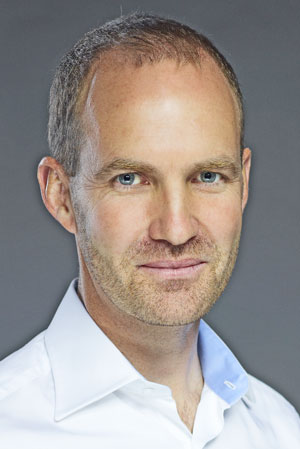Historian and author David Wright will discuss “Lejeune’s Legacy: The Contested History of Trisomy 21 (Down Syndrome)” on Thursday, April 28, at 6:30 p.m. in the auditorium of O’Shaughnessy Educational Center on the St. Paul campus of the University of St. Thomas.
The lecture, free and open to the public, is sponsored by St. Thomas’ Terrence J. Murphy Institute for Catholic Thought, Law and Public Policy. The institute is a collaboration between the university’s School of Law and Center for Catholic Studies.
Those attending are asked to make an online reservation at this website.
Wright is professor of history and Canada Research Chair in the History of Health Policy at McGill University in Montreal. He is the author of Downs: The History of a Disability (Oxford University Press, 2011), which examines society’s response to Down syndrome over the course of modern history. The book was awarded the 2013 Dingle Prize for the best scholarly work in the history of science and medicine accessible to a general audience.
His April 28 lecture is based on one chapter of the book, which explores the complicated world of scientific discovery and its sometimes unpredictable and ambiguous impact on social values and ethics.
The 1959 discovery of the first human trisomy (trisomy 21, later renamed Down syndrome) has traditionally been attributed to the French cytogeneticist Jérôme Lejeune, who received the Kennedy Medal of Honor for "Contributions to Mental Retardation."
However, on the eve of the 50th anniversary of this landmark discovery, one of his colleagues, Marthe Gauthier, claimed that Lejeune elbowed her aside and stole credit for what had been largely her own work. This assertion, coming years after he had died, adds yet another layer to the mystery of Lejeune – a devout Catholic who became personally troubled by the inadvertent contribution of “his” discovery to the rise of genetic testing in the late 1960s and 1970s.
Lejeune gradually became marginalized by many of his own colleagues for his public championing of pro-life positions. He would achieve some degree of recognition – becoming a confidante and scientific adviser to Pope John Paul II – but the inability of the medical community to find a cure for this chromosomal anomaly and the concurrent rise of the selective abortion of Down syndrome fetuses led him to lament that much of his life's academic work had been in vain.
Lejeune has been named a "Servant of God" by the Catholic Church and his cause for sainthood is being promoted.
An article about Lejeune appeared in the April issue of Crisis Magazine.
(For lawyers: this program has been approved for a continuing legal education credit (event code 218761).(








